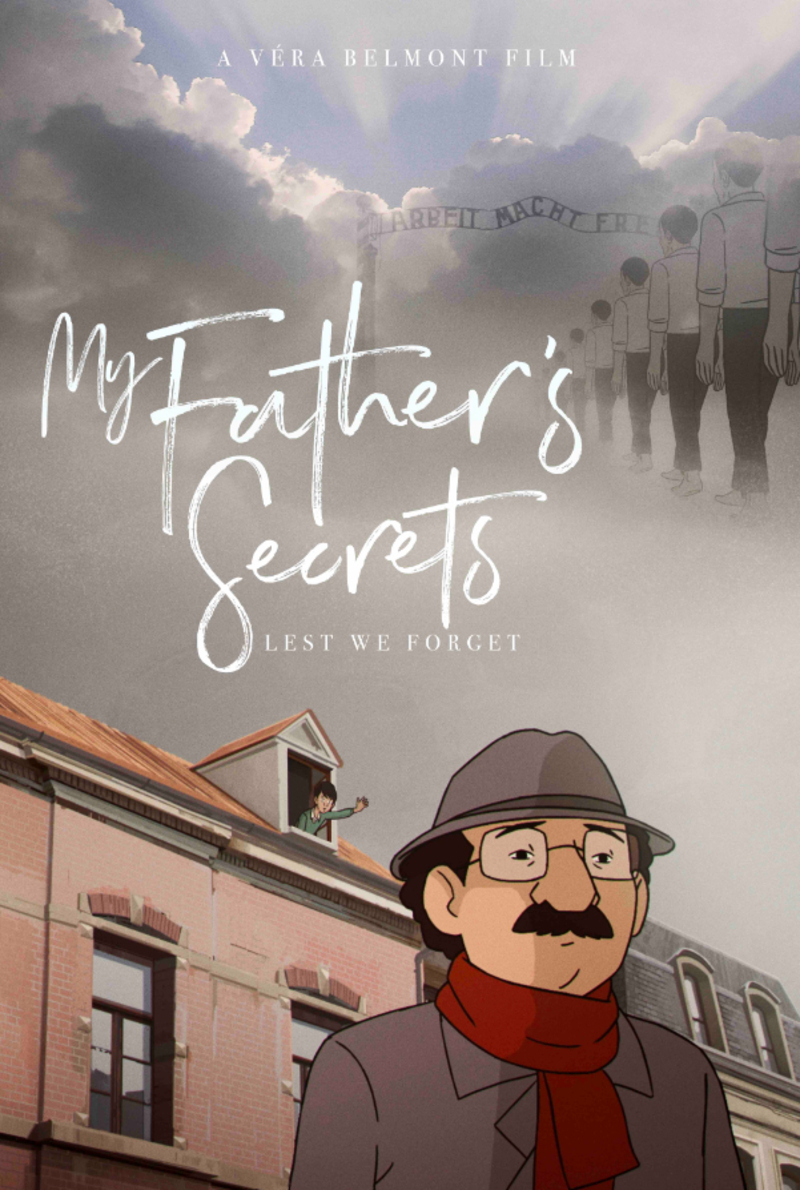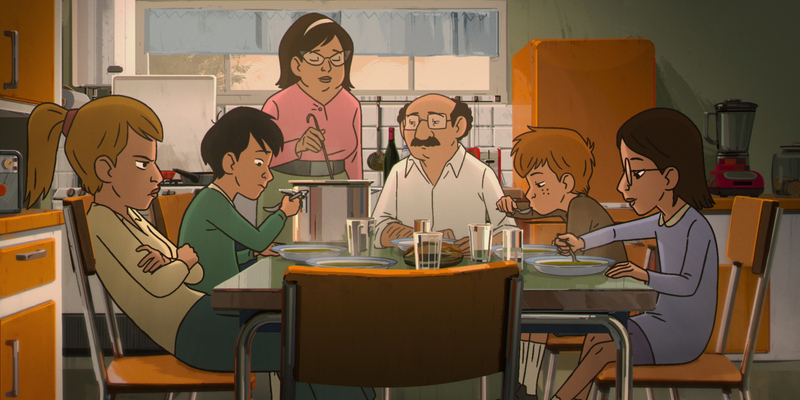
Review by
Benjamin Poole
Directed by: Vera Belmont
Voice cast: Elliott Gould, Miriam Margolyes, Tracy-Ann Oberman, David Baddiel

The most powerful invention of mankind is the story. Stories are
constructed for us and by us to enable understanding of who we are, and
who we need to be (look, like them or not, there's a reason why
superhero narratives are so popular). As a vehicle for information or a
decanter holding history, the story affects because its craft, its
inherent personalisation, communicates with an immediacy that the
objective material of bald facts and figures cannot. Refracting the
Shoah through an anthropomorphic lens, Art Spiegelman's Maus recast
Weimar Germany as a menagerie of cats, pigs and mice and reframed
suffering and the prejudice which begat it with a distinction that gave
painful imminence to historical material. Stories must be told,
requiring a storyteller to mould the narrative data into shapes which
fit into the imagination, the hearts and the mind of the listener.
Spielberg (cinema's greatest storyteller, even in the name etc) retold
the same history through a distanced gauze of monochrome, recognising
that certain narratives need to be handled with due care and
circumspection to support the telling.

In Véra Belmont’s animated
My Father's Secrets (scripting assistance from
Valérie Zenatti and based on the graphic novel memoir by
Michel Kichka), Jewish father of five Henri doesn't tell stories.
As per the title, Henri shuts himself away in a locked office
chronicling the past while his children, specifically Michel who
narrates from an adult perspective as David Baddiel, live a
halcyon life in a 1950s Belgium straight out of the pages of European
comics: all soft line work and pastel shading.
The lads are blissfully unaware of the implications of their heritage,
and idiotically imagine that the figures tattooed upon certain members
of their close community are phone numbers. When their ethnicity is
brought to the fore in school sanctioned apartheid, Michel is actually
pleased that he is sent outside to play football rather than listen to
boring old history. This moment, played for poignant laughs in this
mainly gentle children's film, is a nonetheless telling contribution to
the film's themes regarding narratives and their power: the stories we
experience depend on who is authorised to tell them. Henri is not as
amused, and the boys are sent to a boarding school which provides
education but is exactly as foreboding as you would expect such an
institution to be in a film for children, while furthermore underlining
how enforced segregation is symptomatic of being Jewish.

The details of the death camps weren't properly communicated until many
years after the war (a fact that still blows my mind) with the trial of
Eichmann in 1960. In My Father's Secrets this event proves
to be duly pivotal. Up until the trial Henri has kept his counsel
regarding his internment, but, the film suggests, the trial, which is
broadcast on television, gives him a moral imperative to share his
story, and over time he becomes an advocate for Jewish history. Michel's
feelings surrounding his father's aloofness and his difficulties in
communicating with his children are given further emotional
complications, and the two become estranged, a development which anchors
the bittersweet narration.
As biography, and one which entails a conscientious fealty to fact,
My Father's Secrets does present as episodic, a series of
events that coalesce as lived experience but not connective narrative (a
tragedy towards the end of the film which is senseless and entirely
unrelated to the otherwise focus on the events of 1940s Europe is
indicative of the structure), and at times does lack the causal
imperative of stories intended for young ones. Nonetheless, it is
difficult to imagine children not being engaged by this pacey film with
its warm characterisation and essential ideologies.

Henri comes to realise the importance of telling stories as a way of
re-establishing history and communicating lessons. The Holocaust was
something human beings did to other human beings, a genocide which was
observed by Europe yet unacknowledged until much later because it didn't
fit the prevalent hegemony. In a world in which the narratives of war
are weaponised and obfuscated, the stories of the people who are
directly affected by conflicts beyond their control are as vital as
ever.

My Father's Secrets is on UK/ROI
VOD from November 27th.

